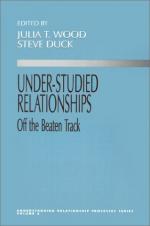|
This section contains 2,033 words (approx. 7 pages at 300 words per page) |

|
Although Gilles Deleuze and Félix Guattari explicitly define the approach they develop in Anti-Oedipus (1972) as a "materialist psychiatry" and insist repeatedly that the unconscious be thought of as an "orphan and an atheist," schizoanalysis turns out to have important ramifications for the study of religion. That religion plays such an important role in a book of materialist psychiatry may be less surprising given the centrality of Baruch Spinoza to Deleuze's thought; but then again, Deleuze reads Spinoza through the lenses of Karl Marx and Friedrich Nietzsche. An evaluation of religion is thus both crucial to the development of schizoanalysis and quite complex, even ambivalent.
Schizoanalysis is, first and foremost, a world-historical, Marxian critique of Freudian psychoanalysis. While it is true that schizoanalysis combines insights from all three of the great high-modern materialists (Marx, Nietzsche, and Sigmund Freud), each of whom is used to...
|
This section contains 2,033 words (approx. 7 pages at 300 words per page) |

|



